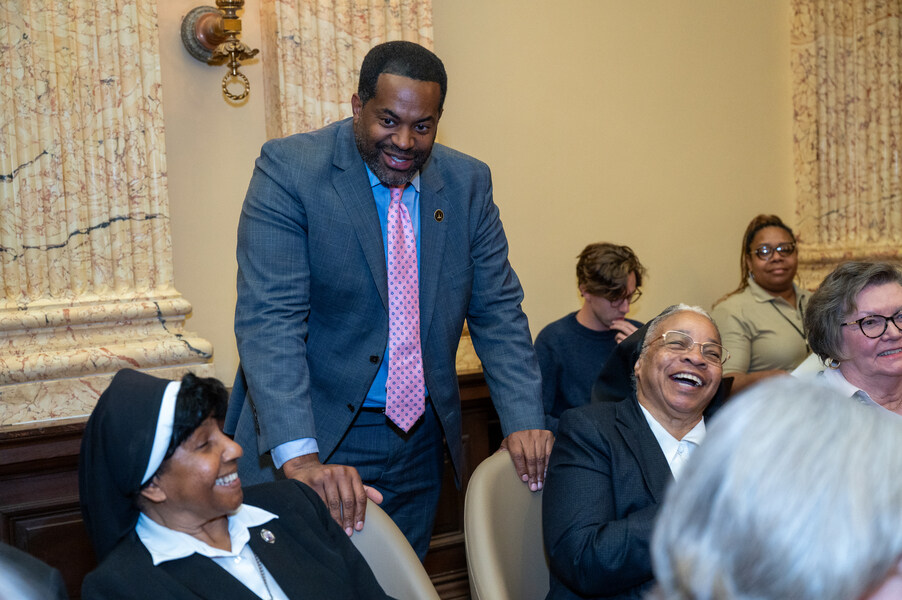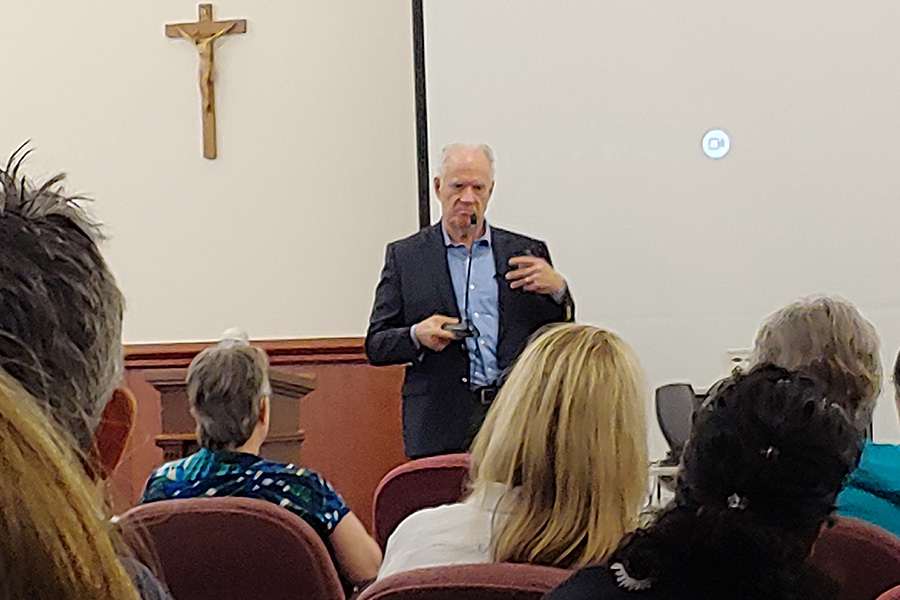Baltimore City Council chambers rocked with applause and cheers Dec. 4 as a strong new law requiring inclusionary – meaning, affordable – housing for low-income residents in new developments was adopted on its third reading.
The bill, adopted 17 months after the expiration of the city’s earlier inclusionary housing law, regarded as a dismal failure, was backed by Catholics in the Archdiocese of Baltimore through Beyond the Boundaries, an archdiocesan program that supports inclusivity and racial justice.
“I don’t overstate when I say this is a historic bill,” said City Council President Nick Mosby.
He said it would grow the downtown community and was “the most equitable way of moving our community forward.”
However, Mosby noted, “This is not the end. It is just the beginning.”

The first part of the bill was passed Dec. 4. The second part, which specifies the tax credits for developers that will guarantee low-income units in new construction, was scheduled for passage Dec. 6.
After the bill’s second reading in November, Baltimore Mayor Brandon Scott, initially a skeptic, issued a statement praising it as “a big step.”
The bill requires residential buildings with 20 or more units that receive Payments in Lieu of Taxes and other city subsidies to set aside 5 percent of the units available for households earning 60 percent of Area Median Income (AMI) and 5 percent for those with incomes at 50 percent of AMI.
A tax credit for developers who construct environmentally friendly “green” buildings is supposed to make up the difference between the market rent and subsidized rent.
Council Bill 22-0195 also requires developers to market the affordable units to historically excluded households, including Black families, persons who use vouchers and other residents who have experienced discrimination.
The city’s earlier housing law, passed in 2007, was supposed to guarantee 20 percent affordable units in new developments, but instead created just 34 low-income units in 14 years because developers were able to easily get waivers.
“More than 50 percent of Baltimore City residents struggle to make ends meet or are below the federal poverty line,” said a statement from Beyond the Boundaries. “The market rate development, going up in areas such as Harbor East, is out of reach to these residents, so affordable housing is a must.
“Baltimore will have given $75 million from one special tax break alone to multi-family housing developers from fiscal year 2014 through fiscal year 2023. Almost all the 6,621 units created with this subsidy are luxury, non-affordable units located in predominantly white, high-income neighborhoods.”
Beyond the Boundaries held a rally outside City Hall before the vote.
The coalition backing the law included the Baltimore City Branch of the NAACP, Baltimore Renters United, Bridge Maryland, the Community Development Network, SHARE Baltimore, Citizens Planning and Housing Association, Baltimore Regional Housing Partnership and Public Justice Center.
She acknowledged in an interview with the Catholic Review that there were “concerns about stopping development. But everyone was committed to making it work.”
Ramos predicted the new ordinance should initially create at least 60 affordable units per year.
After the vote, Ramos said the law “is one of the first steps we have to take to dismantle the racist housing policies that were made right here in this chamber.”
The Baltimore area’s long history of segregation in housing stretches back to 1911, when the city council passed the first enforced discriminatory deed restrictions.
Ramos’ bill requires a study, after three years, of the law’s impact on city finances.
Read More Local News
Copyright © 2023 Catholic Review Media







